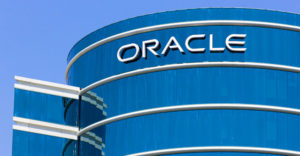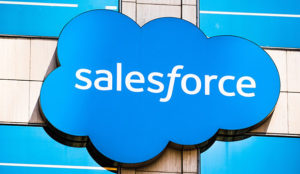
Oracle continued its fast-following ways last week when it introduced additional functionality for Oracle On-Demand Release 16. The statement completed a two-part announcement begun the week before and brings to eight the number of new on-demand CRM applications from the company.
The products announced last week include Oracle Self-Service E-Billing On Demand, Oracle Sales Library, Oracle CRM On Demand Deal Management, Oracle CRM On Demand Enterprise Disaster Recovery and Oracle AIA integration from Oracle CRM On Demand to JD Edwards Enterprise One. All of these introductions are quite useful, and together they say a lot about the company’s direction and approach to the market.
Oracle is aiming at the enterprise on-demand space. If you ask Anthony Lye, senior vice president and all around CRM maven, why he’s targeting that space, you will get the same answer a reporter once got by asking a famous bank robber why he robbed banks. That’s where the money is.
The Price/Value Balance
Oracle is one of a small list of companies that can readily command the enterprise market’s attention. Many of these applications make sense in any setting but they are especially suited to the enterprise. The best example I see is Deal Management. I have seen the demo and just the thought behind the application is impressive.
We all know that many big deals are deals in the true sense — list prices are often not accurately reflected in the final price. For example, at some point in a big deal, the difference of a few units either way will not affect the vendor’s revenue structure as much as not getting the deal. In other words, there is a balancing point between price and perceived value, and a vendor has to be smart enough to spot the balance without giving away the store.
It sounds easier than it is, especially in an enterprise situation where vendor and customer may have a long history. The customer’s price tolerance, budget, current installed product base, recent purchases and a lot more go into pricing the deal. Knowing when to lower a price and when to hold firm are important to the seller, and historically, the decision has been more art than science. Deal Management provides a workspace, graphics and some fancy math in the background to help vendors sort it all out.
If all the additions to the on-demand CRM suite were as unique and clever, I would have less to write about. The disaster recovery and integration products introduced last week get a pass, both because they are good and because they are the kinds of products that a vendor like Oracle ought to be involved in providing to customers. Other products, like the Sales Library, are a different story.
Opening to Partners
Oracle has a storied reputation for building products more than partnering. To be sure, the company has a partner program with many participants. But while it touts 14 Inner Circle partners (most are also in Salesforce.com’s AppExchange), Salesforce.com publicizes a partner community that is pushing 1,000.
Oracle’s total partner network includes 19,000 companies, but that begs the definition since it includes ISVs (independent software vendors), system integrators and resellers. I suspect that the number of vendors that can add value to Oracle CRM On-Demand is larger than 14 but probably less than 19,000.
Oracle’s next step in its effort to be the fast following on-demand CRM alternative ought to be opening up a bit more to the independent partner community. What they’ll discover is that the independents are far ahead in thinking up clever new applications. Some meld together baseline CRM with social networking sites and others have identified whole new business processes. They might also find that independents who specialize may offer something better than the Oracle branded function.
I think the future of our business is with the small companies innovating around big new ideas. Keeping those companies in a vendor’s orbit will require significant platform capabilities. So far, Salesfsorce.com seems to have that market to itself. To be more correct, many companies that are nontraditional software vendors dominate the platform market. In addition to Salesforce.com’s platform, those vendors include Google, Amazon and Facebook. If Oracle wants to be a fast follower, it will have to tell a better story about platforms.
Denis Pombriant is the managing principal of the Beagle Research Group, a CRM market research firm and consultancy. Pombriant’s research concentrates on evolving product ideas and emerging companies in the sales, marketing and call center disciplines. His research is freely distributed through a blog and Web site. He is working on a book and can be reached at [email protected].





















































